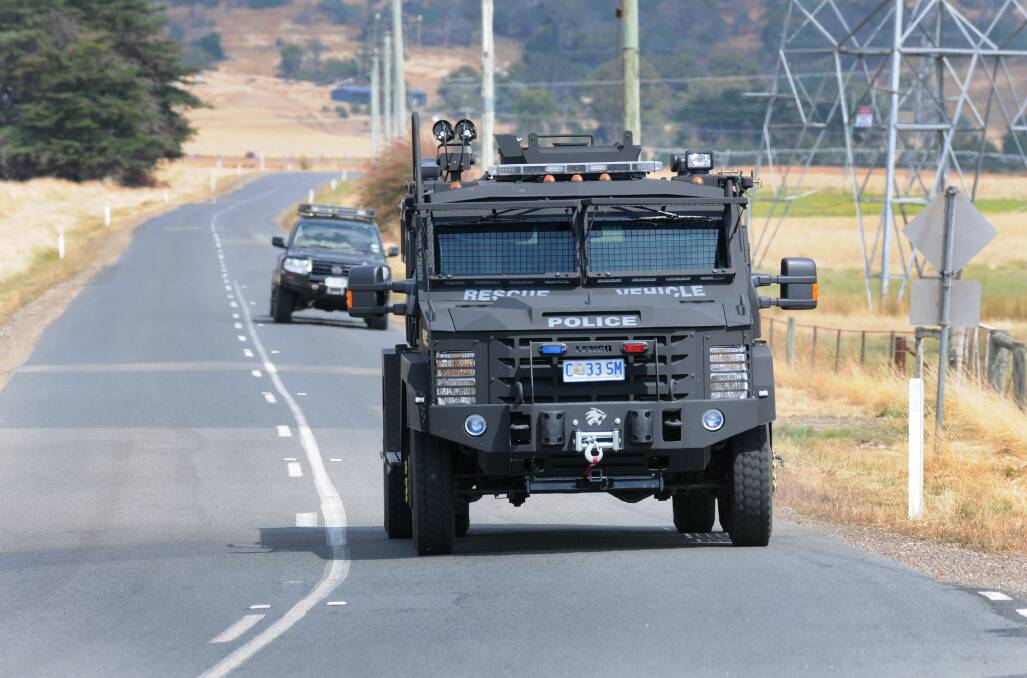
Recent events in Launceston - two sieges with armed persons in less than a month and the latter ending with members of the Special Operations Group taking tactical action to end the incident - highlight why Tasmania Police develops and maintains such capabilities.
Subscribe now for unlimited access.
$0/
(min cost $0)
or signup to continue reading
What is largely unknown in the Tasmanian community is the huge amount of work done by the Special Operations Group during planned investigations and operations.
A great percentage of Special Operations Group operations escape the gaze and scrutiny of the media.
The Special Operation Group exists in part due to national arrangements through the Australian and New Zealand Counter Terrorism Committee.
Each jurisdiction receives Federal assistance for equipment and training consumables to ensure each state has a strong Police Tactical Group, capable of being able to operate across the country through national interoperability arrangements.
But Tasmania is still the only jurisdiction in the country with a part-time tactical response capability.
From the events and outcomes of the recent Trevallyn siege it would be easy to assume that the current capability of the SOG is not eroded or limited by this.
Unfortunately, this is not the reality.
In 2003, the then Labor state government provided funding to establish a full-time element of the Special Operations Group.
Although this did not involve all members it was the beginning of a full-time capability.
In 2012, this full-time capability ceased to exist after budget cuts from the government, still Labor.
As we creep towards 2019, the Police Association of Tasmania is not only calling on the government to honour its 2018-19 budget promise to re-establish a core fulltime Special Operations Group, but to ensure that investment is meaningful and sustainable within the Tasmania Police budget allocation.
The current commitment stands at $240,000.
This is a piecemeal amount that will do little to further the capability and capacity of the Special Operations Group and most importantly, demonstrate an investment in the most important and critical element of the Group – its human resource.
Why is this such an issue?
The Special Operations Group train 45 days per calendar year in order to maintain their comprehensive skills set.
The capabilities of the Special Operations Group are significant and maintaining competencies is a difficult and time-consuming task.
These officers are the ones that remain ready while the community sleeps at night. They do one of the most dangerous and demanding roles in policing and they are the only ones left when the world descends into chaos. Why don’t they get treated like other highly qualified and specialised areas?
At present, members of the SOG perform this role on a part-time basis.
They leave their day-to-day jobs to attend to their high-intensity training requirements and then play catch up when returning to their primary role.
Then there are the extra duties such as being on call - the SOG maintain a 24/7 urgent response capability.
Operational call-out for planned and unplanned events also eats into their time in their primary work areas.
Consequently, the manager of the Special Operations Grouphas no control over his members annual leave cycles or rostered days off.
All this goes towards making the life of the tactical operator (SOG member) incredibly time consuming and complicated.
Worst of all, when a call-out such as the New World Avenue incident occurs, most of the SOG members responding have already worked a full shift and are then required to stay awake for over 24 hours while responding to an exceptionally high-risk incident.
In a world of modern management where the concept of providing safe work places and work life balances is of paramount importance it seems there is a significant disconnect when it comes to the SOG.
These officers are the ones that remain ready while the community sleeps at night.
They do one of the most dangerous and demanding roles in policing and they are the only ones left when the world descends into chaos.
Why don’t they get treated like other highly qualified and specialised areas?
The Tasmanian community deserves far better.
- Andrew Bennett is the assistant secretary for the Police Association of Tasmania
- Read more, Page 3

